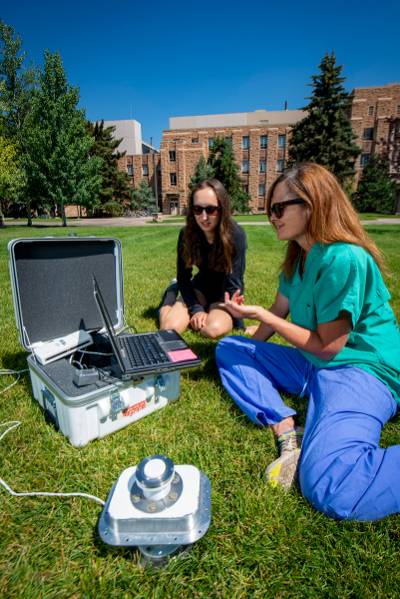

Family and Consumer Sciences
University of Wyoming
Department #3354
1000 E. University Ave.
Laramie, WY 82071
Phone: (307) 766-4145
Email: fam-consci@uwyo.edu
The Human Nutrition and Food graduate program emphasis allows students to pursue studies
in areas such as human nutrition and metabolism, food product development, community
nutrition, food microbiology, sports nutrition, and disease prevention. Students can
choose to pursue emphasis in Human Nutrition and Food option under the Family and
Consumer Sciences umbrella, or the interdisciplinary Food Science and Human Nutrition
option with cooperating curricula from this department and the Department of Animal
Science. Career possibilities upon completion of this field of study include careers
in human nutrition research, sports nutrition, public health and community nutrition,
health and wellness, extension work, food product development, food and nutrition
marketing, management, sales and public relations, food microbiology, and college
teaching (community college) as well as further graduate study or study in professional
education programs in human medicine and health care.

Family and Consumer Sciences
University of Wyoming
Department #3354
1000 E. University Ave.
Laramie, WY 82071
Phone: (307) 766-4145
Email: fam-consci@uwyo.edu